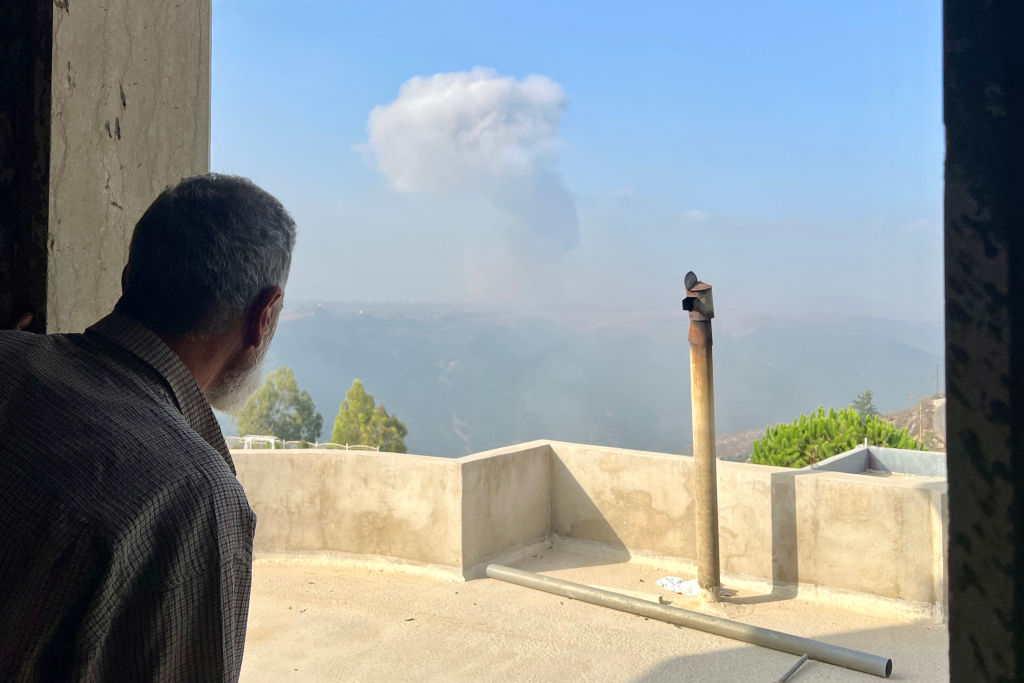Early yesterday morning, Hezbollah fired a barrage of rockets and mortars from Southern Lebanon towards Israeli military positions along the border between the two countries. The group cited the strikes as revenge for the Israel Defence Force’s assassination of Hezbollah commander Fuad Shukr last month.
Hezbollah claims it managed to fire 320 rockets and drones at Israel. The IDF asserts that the number is far lower, and responded almost immediately with artillery strikes targeting the launch sites in Lebanon and specific Hezbollah observation posts near the border.
It also used around 100 jets to carry out a series of pre-emptive airstrikes at 40 additional targets deeper inside Lebanese territory, destroying thousands of Hezbollah’s rocket launchers. This followed intelligence that the group was planning a huge attack against Israel.
Where Hezbollah and its Amal allies said three of their fighters had been killed, the IDF reportedly lost one soldier. It also appears that Hezbollah managed to kill some chickens, which has led to much online mirth about the assassination of “Zionist chickens”, replete with memes of Hezbollah leader Hassan Nasrallah decked out as KFC’s Colonel Sanders.
It recalls the now-famous “incident” of the “Zionist dolphin”. On 19 August 2015 Hamas’s al-Qassam Brigade claimed it had captured a dolphin wearing cameras and various bits of tech off the Gaza coast. “Israel did not just stop at the bloody attacks against the Gaza Strip,” thundered the Palestinian al-Quds daily newspaper. “Now it has recruited a watery pet, the dolphin, known for his friendship with humans, to use for operations to kill Qassam Brigade naval commandos.” The IDF declined to comment.
Hezbollah is a serious problem for Israel. Its military capabilities are far in excess of Hamas’s — it has an estimated arsenal of over 100,000 rockets and missiles, some with the capability to reach deep into Israeli territory. When I was last in Israel, I visited the country’s northern border, which remains largely deserted; thousands had been ordered to flee because of the rocket fire. This gives Hezbollah de facto control over who lives in that part of the country, which is clearly something no state can accept.
Israel views Hezbollah as arguably the greatest direct threat to its security. Political sources tell me that many in the IDF think now is the time to try to take the group out once and for all. After the attack, Hezbollah pointedly declared “an end” to the first phase of the retaliation for Shukr.
Right now, Israeli deterrence looks to have been restored. Hezbollah’s “revenge” was wrought mostly on chickens. Despite Iran’s many vows of retaliation for the assassination of Hamas chief Ismael Haniyeh in Tehran last month, any actions against Israel have yet to materialise.
But, as ever, the risk of a war that no one wants becoming unavoidable through miscalculation or brinkmanship or outright stupidity remains. Of course, any such war would not be confined to Israel and Hezbollah, inescapably dragging in the region and then inevitably the major world powers too. And that is something that must be avoided at all costs.











Join the discussion
Join like minded readers that support our journalism by becoming a paid subscriber
To join the discussion in the comments, become a paid subscriber.
Join like minded readers that support our journalism, read unlimited articles and enjoy other subscriber-only benefits.
Subscribe